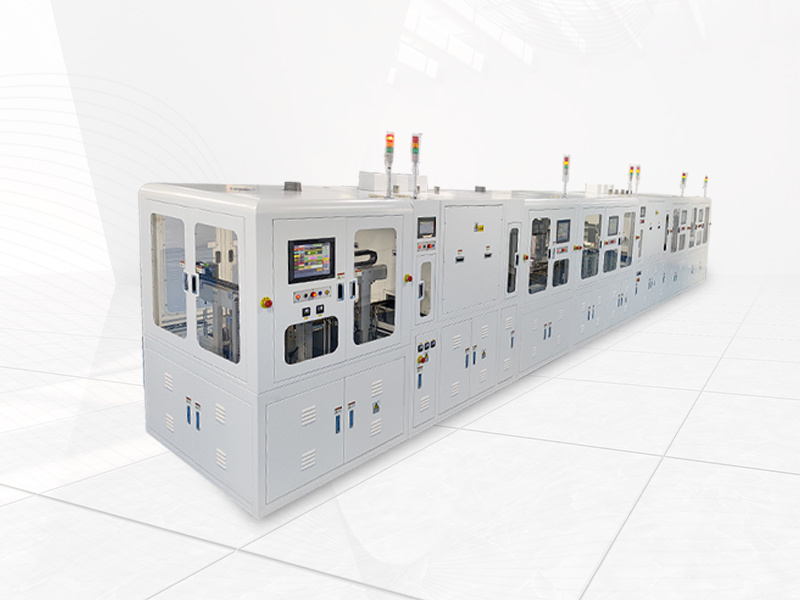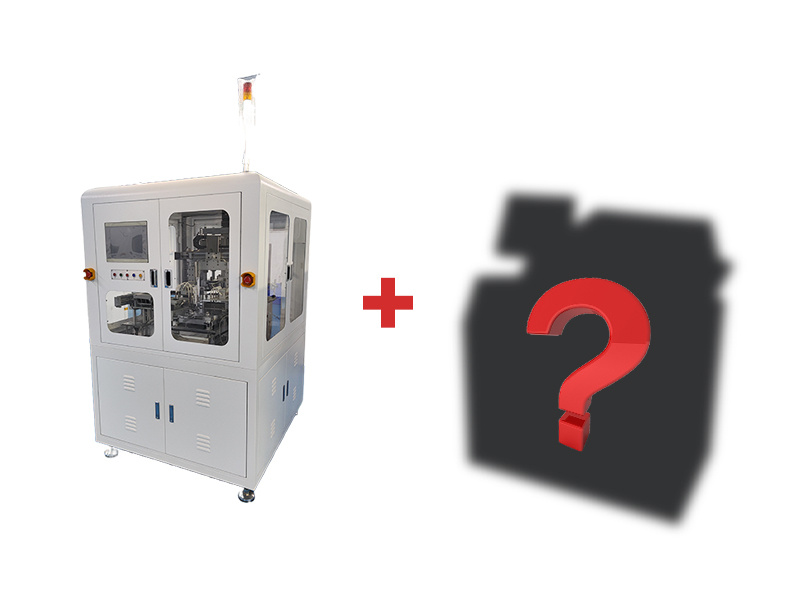The Impact of Automatic Dipping Machines on Quality Control in Manufacturing
Release time:
Mar 26,2025
The Impact of Automatic Dipping Machines on Quality Control
Table of Contents
- 1. Introduction to Automatic Dipping Machines
- 2. Understanding the Technology Behind Automatic Dipping Machines
- 3. The Significance of Quality Control in Manufacturing
- 4. Enhanced Product Consistency through Automation
- 5. Reducing Human Error in Manufacturing Processes
- 6. Cost Efficiency and Productivity Gains
- 7. Case Studies: Successful Implementation of Dipping Machines
- 8. Future Trends in Automatic Dipping Technology
- 9. FAQs about Automatic Dipping Machines and Quality Control
- 10. Conclusion
1. Introduction to Automatic Dipping Machines
In modern manufacturing, the quest for excellence drives innovation. One notable advancement is the **automatic dipping machine**, a system designed to enhance the quality control processes across various industries. These machines are engineered to apply consistent coatings, ensuring that the final products meet stringent quality standards. By automating the dipping process, manufacturers can guarantee uniform application, reduce waste, and ultimately improve the overall quality of their products.
2. Understanding the Technology Behind Automatic Dipping Machines
Automatic dipping machines utilize advanced technology to streamline the dipping process. They are equipped with features such as programmable controls, precision sensors, and conveyor systems that allow for efficient operation. The machine's design typically incorporates:
- **Programmable Logic Controllers (PLCs)**: These devices enable precise control over dipping times, temperatures, and withdrawal speeds.
- **Sensors**: They monitor variables such as viscosity and temperature, ensuring optimal coating conditions.
- **Conveyor Systems**: These systems facilitate the continuous flow of products through the dipping process, minimizing downtime.
Together, these components work in harmony to create a sophisticated system that enhances both efficiency and output quality.
3. The Significance of Quality Control in Manufacturing
Quality control is crucial in manufacturing as it directly impacts customer satisfaction, brand loyalty, and profitability. Poor quality can lead to increased returns, damage to reputation, and loss of market share. Therefore, establishing an effective quality control process is non-negotiable. Automatic dipping machines play a vital role in this framework by ensuring that each product consistently meets the predetermined specifications.
A robust quality control system involves:
- **Inspection**: Regular checks to assess product quality.
- **Testing**: Evaluating the durability and functionality of products.
- **Feedback Loops**: Gathering data to continuously improve manufacturing processes.
Integrating automatic dipping machines into this framework enhances the reliability of quality control efforts.
4. Enhanced Product Consistency through Automation
One of the primary benefits of automatic dipping machines is their ability to provide **enhanced product consistency**. When manual processes are involved, variability can occur due to differences in operator technique, environmental factors, and material inconsistencies. Automatic dipping machines eliminate these variables by applying coatings uniformly, resulting in products that meet specifications consistently.
For instance, in industries like automotive manufacturing, where finish quality is paramount, these machines ensure that every component receives the same treatment, leading to a higher-quality end product.
5. Reducing Human Error in Manufacturing Processes
Human error is an inevitable aspect of any manual process. Whether due to fatigue, inattention, or varying skill levels, human mistakes can lead to inconsistencies in product quality. Automatic dipping machines significantly reduce the likelihood of such errors. With precise control mechanisms and automated processes, the potential for mistakes becomes minimal, ensuring that each part is treated identically.
Moreover, the integration of machine learning algorithms can further enhance the system's accuracy. By analyzing historical data, these machines can adapt their operations in real-time, responding to any anomalies that may arise.
6. Cost Efficiency and Productivity Gains
Investing in automatic dipping machines can lead to significant cost efficiency and productivity gains. While the initial investment may be substantial, the long-term savings and benefits far outweigh these costs. The advantages include:
- **Reduced Labor Costs**: Automation decreases the need for manual labor, allowing employees to focus on higher-value tasks.
- **Lower Material Waste**: Precise application reduces excess coating material, lowering costs associated with waste.
- **Increased Throughput**: These machines operate continuously, increasing production rates and enabling manufacturers to meet demand more effectively.
Overall, the shift towards automation in dipping processes not only enhances quality control but also contributes to a healthier bottom line.
7. Case Studies: Successful Implementation of Dipping Machines
To illustrate the efficacy of automatic dipping machines, we can look at several successful case studies across diverse industries:
- **Automotive Industry**: A leading automotive manufacturer implemented automatic dipping machines to coat components with a protective layer. By doing so, they improved their coating consistency by over 30% and significantly reduced product recalls due to coating failures.
- **Aerospace Sector**: An aerospace company adopted automatic dipping technology for their aircraft components. The automated process heightened safety standards while maintaining critical performance metrics, resulting in enhanced reliability and customer confidence.
- **Consumer Goods**: A consumer electronics firm integrated dipping machines for coating circuit boards. This not only streamlined their process but also improved product durability, leading to a 25% reduction in warranty claims.
These case studies underscore the transformative impact that automatic dipping machines have on quality control and overall manufacturing excellence.
8. Future Trends in Automatic Dipping Technology
As technology continues to evolve, so too does the potential for automatic dipping machines. Future trends in this domain may include:
- **Smart Automation**: The rise of IoT devices will enhance machine connectivity, allowing real-time monitoring and analysis of production data to optimize processes further.
- **Eco-friendly Coatings**: There is a growing demand for environmentally friendly materials. Future machines may focus on using bio-based coatings and reducing energy consumption during the dipping process.
- **Customization and Flexibility**: Advances in technology will likely lead to more adaptable machines that can handle a wider range of products and coating types without extensive reconfiguration.
These trends indicate a promising future for automatic dipping machines, further solidifying their role in quality control.
9. FAQs about Automatic Dipping Machines and Quality Control
What are automatic dipping machines used for?
Automatic dipping machines are primarily used for uniformly applying coatings or finishes to products in manufacturing processes.
How do automatic dipping machines improve quality control?
They enhance quality control by ensuring consistent application of coatings, reducing human error, and enabling precise control over dipping variables.
What industries benefit from automatic dipping machines?
Various industries, including automotive, aerospace, and consumer goods, benefit from using automatic dipping machines to enhance product quality.
Are automatic dipping machines cost-effective?
Yes, while the initial investment may be high, automatic dipping machines lead to long-term cost savings through reduced labor and material waste.
What are the maintenance requirements for automatic dipping machines?
Regular maintenance includes cleaning, inspecting components, and updating software to ensure optimal performance and longevity.
10. Conclusion
Automatic dipping machines represent a significant advancement in the realm of manufacturing, particularly concerning quality control. By enhancing product consistency, reducing human error, and achieving cost efficiency, these machines play a critical role in modern industrial processes. Companies that invest in this technology position themselves for success in an increasingly competitive market. As we look to the future, continued innovation in automatic dipping technology promises to further transform quality assurance standards, paving the way for even greater achievements in product quality and manufacturing excellence.









